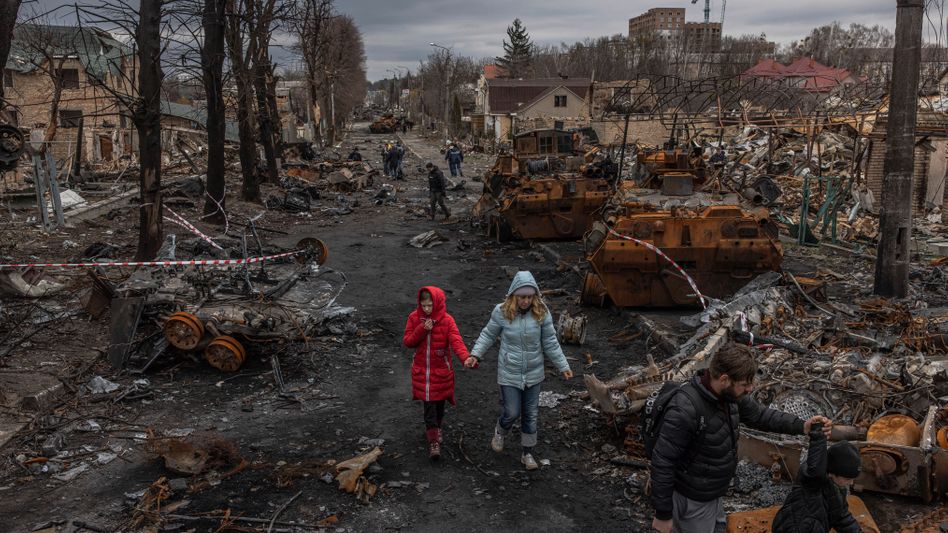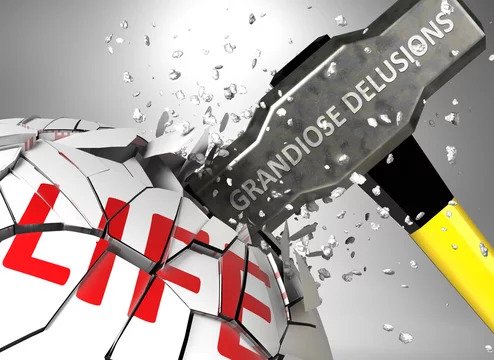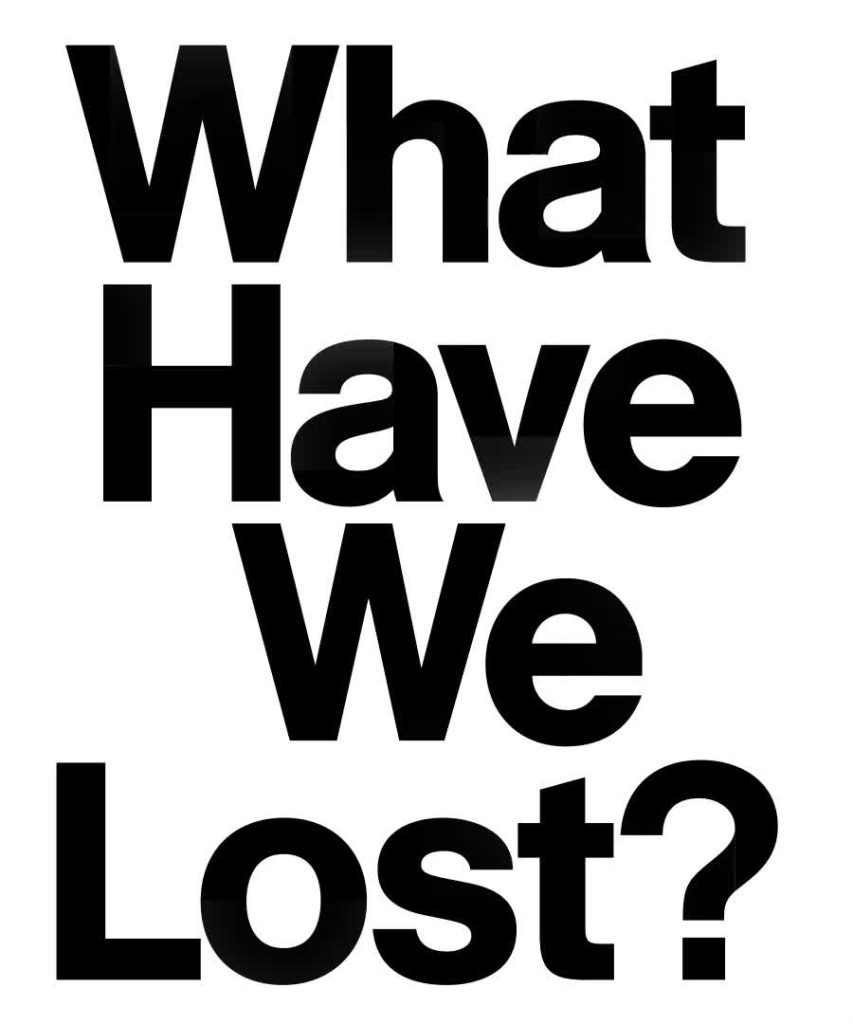It’s only human to recoil from the horrors of war. But for most, the war in Ukraine revealed how the world really works.

ABOVE: in late April 2022, Vladyslava Liubarets, a resident of Bucha, Ukraine, northwest of Kyiv, walks with her daughter and husband past destroyed Russian military machinery. Bucha was a town retaken by the Ukrainian army in mid-April. Hundreds of tortured and killed civilians would be found in Bucha and surrounding areas after the Russian army retreated from those areas. As Russian troops retreated from other areas, hundreds more of tortured and killed civilians would be found.
24 February 2023 — The twentieth century left behind a painful and complicated legacy of massive trauma, monstrous crimes, radical social engineering, and collective/individual guilt syndromes that needed to be deconstructed. More often than not, the past appears as a devastated landscape full of corpses, dashed illusions, failed myths, betrayed promises, and unprocessed memories. Now over two decades into the twenty-first century, the century repeats. Not just in Ukraine but in Afghanistan, Ethiopia, Haiti, Iraq, Palestine, Somalia, Syria, Yemen – the list seems endless.
But the historical experience of the previous century still fundamentally shapes how we envisage our contemporary world at personal, local, national, continental, and global levels. And so you need an historian, to provide perspective, who can combine profound knowledge and understanding of the longer, deeper structural processes of history. In fact, you need at least two historians. I found them in Jacques Semelin (the subject of my upcoming movie on the Holocaust and the weapon of genocide; the movie “teaser” can be found here), and in Dr. Edyta Gawron, a historian who works as a Professor in the Institute of Jewish Studies, Jagiellonian University in Krakow, Poland. She is also serves as the president of the Management Board of Galicia of the Jewish Heritage Institute Foundation which runs the Galicia Jewish Museum in Krakow). I had the opportunity to interview her about Jacques Semelin’s work but also about her career, the Museum, Jewish studies, the Holocaust, Ukraine, genocide and the world today and you can find that interview by clicking here. Both Jacques and Edyta have informed so much of my work.
In times of peace, it is always impossible to imagine – I mean really, truly, vividly imagine – war. For instance, when you look upon the hills of Tuscany, Italy today, you cannot conjure the horrors its residents once witnessed. There is an area in Central Italy called the Val d’Orcia, one of those charmed places which God has seemingly bestowed with too many gifts. With its rolling hills topped by medieval towns and its verdant vineyards alternating with earthen fields of wheat, its glorious food and vistas, it is easy to fancy that the happy few who get to live there, and those that visit, do not know it suffered the worst of which humanity is capable.
At the height of World War II, the Nazis occupied the region. When partisans fought back, staging courageous attacks from nearby mountains, the SS exacted bloody retribution by executing scores of civilians. At one of the areas favorite outlooks, an inconspicuous plaque reminds visitors of this somber history: “You who pass and ponder this peaceful valley,” it reads, “stay awhile and remember those who have perished here.”
I’ve been to Kyiv (before the war) and walked the streets of that (then) bustling city. So like most, it was just impossible to grasp, at more than an abstract level, that one man’s decision could soon turn it into a bloody battlefield. Most people failed to imagine what it would mean if Russia launched a full-scale invasion of a country with which it shared so much culture and history – or the extent to which this strangely 19th century war was to be filled with 20th century horrors.
Today I have read scores of pieces on Ukraine’s “year of war” – a war that really began 9 years ago, in 2014, when Russia seized Crimea. In the West, we pretend today is the 1st anniversary, to hide our own failure to react properly during 2014-2022. War crimes were also happening back then … civilians tortured and killed, cities destroyed, etc. But my task today is not to provide a history lesson but to address other revelations.
In the first weeks after 24 February 2022, the shock of a war in the (nearly) here and (very much) now commanded the undivided attention of the Western world. Ukraine dominated the front pages of every newspaper. Thousands of buildings and social media accounts were adorned with Ukrainian flags. A good many people, at least at first, followed every twist and turn of the war with rapt attention. But the human mind not only boggles at the thought that a place like Kyiv (or the Val d’Orcia) can from one day to the next turn into a battlefield. Because unless the conflict dominates your everyday life, it also struggles to keep that thought in focus given the firehose of social media. And so the attention which much of the world once paid to the conflict in Ukraine has gradually receded. The war no longer dominates the front pages of American newspapers. The marketing departments of major corporations came up with plans for removing Ukrainian flags from their office buildings and social media accounts as inconspicuously as possible, often by temporarily replacing them with a symbol of support for some other worthy cause.
The discomfiting truth of the matter is that war, if it does not threaten your immediate survival, is both scary and fundamentally boring, making it tempting and easy to look away. When it seemed as though Russian tanks were about to roll down the streets of Kyiv, the world was riveted with suspense. When the first reports of terrible war crimes emanated from Bucha, the sheer horror of it all was enough to command attention. But the longer a war drags on and the more the corpses pile up, the less one day’s news seems to differ from another’s. On some days one army advances by a few miles, on other days another army does. On some days the residents of this faraway village are massacred, on another day civilians in that faraway town get bombed. At some point even those of us who have deep compassion for the suffering of innocent victims cannot help but notice that, from a purely narrative point of view, wars are less compelling than the average soccer game.Yes, we live in a world where everyday “more corpses pile up” all around the world. Ho, hum. Nothing new.
And to compound it, “the social horror”. At the height of the collective outpouring of concern about Ukraine, some American commentators insinuated that there was “something racist” about the widespread solidarity for the Ukrainian cause. The bloody civil war in Syria, they pointed out, faded out of view; if we are paying attention to Ukraine, it must be because we have a greater concern for white lives. When you are a hammer, everything looks like a nail – and in America, a particular kind of hammer has of late been produced en masse.
And as I feared and wrote last July, if this war goes one year or more the human desire to look away from the everyday horror of war will assert itself. It’s the present human condition. If this terrible war should still be raging on its second or third anniversary, it will likely have fallen out of focus just as much as the terrible conflict in Syria eventually did.
The temptation to look away is as human as is the capacity to murder people in the name of national pride or ideological purity. But as philosophers remind us, a behavior can be natural without being right or acceptable. And so we must struggle, against our deep-seated instincts, to keep enough of a focus on the conflict in Ukraine to make sure that our governments do the right thing. It makes no direct difference to Ukrainian civilians and soldiers whether we tune into the horror they live every day. But it makes every difference whether civilians have enough money to heat their homes and whether soldiers have sufficient weapons to expel a brutal invader from their country. Though we may find it increasingly difficult to pay attention, we must at least ensure that our governments do what they can to support a righteous cause.
Hundreds of thousands of Ukrainian soldiers continue to risk their lives in defense of their freedoms. Their success will determine whether 44 million of their compatriots will, for the foreseeable future, suffer under neocolonial domination. It may also determine whether the residents of Central and Western Europe can continue to enjoy a fragile peace they long took for granted. It might even determine whether the people of Russia will someday get another chance at governing their own fate. Anybody who knows anything about the nature of war must hope that the fields of wheat in Ukraine will soon look as peaceful as the fields of wheat in the Val d’Orcia.
But alas, it is a brutal world. And for many, a brutal awakening of the real world.
Because the war in Ukraine is the final shovel of dirt on the grave of any optimism about the world order that was born with the fall of Soviet Communism. Now we are faced with the long grind of defeating Moscow’s armies.
The first half of my life was dominated by the Cold War. I grew up with nuclear bomb air raid drills in elementary school. I went to university at the Sorbonne in Paris in 1972/1973 where demonstrations against both the U.S. and the Soviet Union occurred almost every day. I was 36 years old when I crossed into East Berlin in 1988, and 37 years old when the Berlin Wall fell the next year.
If you did not live through this time, it is difficult to explain the amazement and sense of optimism that came with the Soviet collapse. But it remained every inch the “evil empire” that President Ronald Reagan described – a place of fear and daily low-grade paranoia where any form of social attachment, whether religion or simple hobbies, was discouraged if it fell outside the control of the party-state. That never changed. It was masked, but the underlying truth never changed and so the West was deluded. We completely underestimated the power of Soviet imperial nostalgia and intent.

On this grim anniversary, I will leave the political and strategic retrospectives to others but I do want to address 3 Western illusions that I think have collapsed, forcing the U.S. and Europeans to adjust their positions against the backdrop of a changing international order, something that needs a deep dive but not today.
The first illusion was that Europe’s economic interdependence with Russia would guarantee it lasting peace. The war in Ukraine brutally highlights the strategic cost of our economic and energy dependencies, and the downside of the denial — from Paris and Berlin in particular — of the real threat posed by Putin’s Russia. We have entered an era of lasting confrontation with Moscow and this requires Europe to strengthen its territorial defense capabilities, its economic resilience, and to rethink its neighbourhood policy to avoid grey areas exposed to the permanent risk of Russian destabilization, like Moldova.
The second illusion was to think with certainty that the war would be short and would not require long-term military and financial assistance. This vision now gives way to a refocusing on the imperative of Ukraine’s military victory over Russia, without sharing a common vision of the criteria for this victory and Russia’s defeat. This implies an urgent adjustment of our industrial capacity to accelerate and maintain military aid and training of the Ukrainian army in the long term since they will constitute the hard core of future security guarantees.
The third illusion that falls is that of having believed that the invasion of Ukraine would make Russia an isolated pariah state on the international scene. However, it turns out that Russia continues to enjoy support all over the world, certainly impatient for the war to end, but which allows its economy and therefore its war effort to resist Western sanctions — only 34 states have imposed sanctions on Russia since the beginning of the war. These countries that claim to be multi-aligned want to spare Russia and, by extension, China. The war in Ukraine highlights and accelerates the multipolarization of the world against a backdrop of increasingly vocal contestation of American and Western leadership, whose discourse on the struggle between democracies and autocracies is inaudible or even rejected. Here too, the method and the discourse must change by simplifying the message: if Russia were to succeed in this invasion, the sovereignty and territorial integrity of other states, including in the “Global South”, would be jeopardized. Our aim should not be to rally these countries to our principles, but to define with them the constructive role they could play in finding a way out of the war in Ukraine.

I grieve for the innocent people of Ukraine, for the dead and for the survivors, for the mutilated men and women, for the orphans and the kidnapped children. I grieve for the elderly who have had to live through the brutality of the Nazis and the Soviets and, now, the Russians. I grieve for a nation whose history will be forever changed by Putin’s crimes against humanity.
And yes, I grieve, too, for the Russians. I care not one bit for Putin or his criminal accomplices, who might never face justice in this world but who I am certain will one day stand before an inescapable and far more terrifying seat of judgment. But I grieve for the young men who have been used as “cannon meat,” for children whose fathers have been dragooned into the service of a dictator, for the people who once again are afraid to speak and who once again are being incarcerated as political prisoners.
Finally, I grieve for the end of a world I knew for most of my adult life. I have lived through two eras, one an age of undeclared war between two ideological foes that threatened instant destruction, the next a time of increasing freedom and global integration. This second world was full of chaos, but it was also grounded in hope. The Soviet collapse did not mean the end of war or of dictatorships, but after 1991, time seemed to be on the side of stability.
Now I will live my remaining years in a new era, one in which the world order created in 1945 has collapsed. Yes, the United Nations is a squalid and dysfunctional organization, but it is still a great achievement of humanity. BUT … it was never designed to function with one of its permanent members running amok as a nuclear-armed rogue state, and so today the front line of freedom is in Ukraine. But democracy is under attack everywhere, including in the United States, and while I celebrate the courage of Ukraine, the wisdom of NATO, and the steadfastness of the world’s democracies, I also hear the quiet rustling of a shroud that is settling over the dreams of America – oh, the illusions of America, really – of the way the real world operates.
I do not know how this third era of my life will end, or if I will be alive to see it end.
But my God, the breathtaking waste of war. How sad that human beings survived deadly waves of Covid only to get right back into the business-as-usual of killing one other. The senseless need of both sides to spend tens of billions of dollars on missiles, tanks and other aid, when more needs to be done to help all their communities adapt to rising oceans and drying rivers. It’s lunacy that farmers in the largest breadbasket of the world have gone hungry hiding in bomb shelters. It’s madness that Vladimir Putin declared Ukrainians to be part of his own people — right before he sent his army into the country, where Russian soldiers have raped and murdered civilians.
Governments? Jesus, how they gussy up war. I remember when I met with a Polish commander and a Ukrainian commander in a special NATO presentation. They both said every commander – in the U.S., too – always screams the talk of “victory” because that gives soldiers hope and the will to fight on. But in the end, “war is death in a muddy foxhole”. Oh, the old history of war. An existential fight over a frozen field with no strategic value. It’s a generational grudge that begets new generational grudges.
War is a terrible, dirty business that in no way matches the Hollywood image. It’s also very human, driven by our ambitions, greed, intransigence, superstitions, beliefs and all the other evil angels.